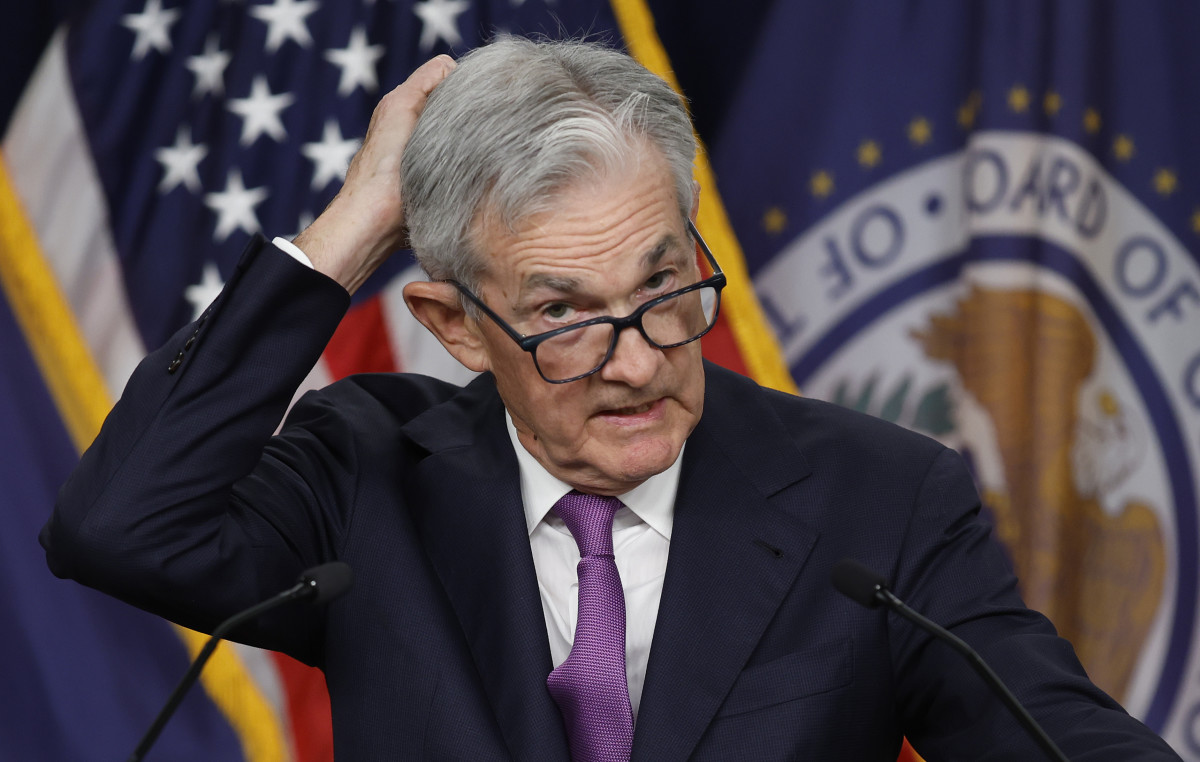
The U.S. economy is starting to see weakness in its most important growth driver, the American consumer, just as the job market displays the first signs of softness heading into the year's second half.
Consumer spending remains a pivotal component of U.S. economic growth; its direct ties to the services sector comprise around two-thirds of GDP in any given year.
Related: Fed rate-cut timing shifts after retail sales data
In many respects, that's why inflation is such a key focus for Federal Reserve policymakers, politicians in Washington, and company bosses nationwide: When consumers stop spending in the face of higher prices, everyone loses.
A combination of factors, including a resilient job market, billions in government stimulus, changing work patterns and a post-pandemic growth spurt for the world's biggest economy, helped power consumer-spending gains for much of the past three years.
That has led to a virtuous circle of low unemployment, including the longest stretch under 4% since the late 1960s; solid retail sales, an economy that has avoided recession despite a series of Fed interest-rate hikes, and a stock market that continues to print record highs.
Cracks in that broader growth foundation are starting to appear, however. And while that's likely to give the Fed more than enough reason to begin cutting rates in the fall, it could challenge the current market consensus for a soft landing of the economy: tamed inflation and no recession.

TheStreet/Shutterstock
The Commerce Department's official reading of May retail sales showed only a modest gain of 0.1%. The headline tally of around $709 billion was largely flat with levels since last December.
Consumer spending slumps
Meanwhile, downward revisions to the March and April tallies, as well as the so-called control-group reading that feeds into the government's GDP calculations, are also giving rise to concern that a much more pronounced slowdown might be developing in the coming months.
"Light retail sales may be good news for inflation hawks, but it could be the beginning of a slowdown in growth, which would hurt a lot more than a couple of interest rate cuts would help," said Chris Zaccarelli, chief investment officer for the Independent Advisor Alliance in Charlotte.
Related: Federal Reserve updates timing of first interest rate cut
"The big story of this bull market has been the resilient consumer, and without them the economy would have slowed – or fallen into recession – a long time ago," he added.
Inflation certainly seems to be playing a role in the May sales slowdown, as well as the muted readings for March and April. Price pressures have remained stubbornly elevated even in the face of Fed interest-rate hikes that have lifted the benchmark lending rate to a two-decade high of between 5.25% and 5.5%.
However, it was notable that while gasoline prices fell modestly in May, to around $3.725 per gallon, according to Energy Department data, overall gasoline station sales tumbled 2.2%.
Furniture and home-furnishings sales were also in sharp decline, falling to the lowest levels since late 2020, with weakness in building materials, autos and broader food services. All this is "consistent with consumer belt-tightening," according to Ian Shepherdson of Pantheon Macroeconomics.
"Most households no longer have savings that they can draw on to support spending," he added. "The depressed level of various measures of consumers’ confidence reflects this lackluster near-term outlook."
Cracks in the job market
Data on jobs might not provide much support going forward either, according to the Goldman Sachs economist Jan Hatzius, who sees an "inflection point" in the otherwise resilient labor market.
“Ultimately, the key driver of labor demand is economic activity, and GDP growth has slowed meaningfully," he said. "[Real] income growth has softened, consumer sentiment has fallen anew, and there are early signs of an increase in election-related uncertainty that could weigh on business investment in coming months."
Payroll-processing group ADP noted earlier this month that workers seeking new roles saw pay gains of 7.8%, the lowest wage premium for changing jobs in more than three years.
Shepherdson of Pantheon Macroeconomics also cites data from labor-analytics group Homebase taken during the week ended June 15, the same period during which the Labor Department conducted its monthly payroll survey. That data could mean the weakest overall hiring total since October of last year.
Related: Analysts revisit S&P 500 price targets after record run
"We think the labor-market downturn will gather pace, as improving employee availability spurs firms to stop hoarding staff, and excruciatingly high real interest rates dampens new hiring," he said.
Bullish fund managers
Big fund managers, however, are not only bullish on U.S. stocks, they're also betting on the very soft landing that consumer-spending and job-market data suggest could be elusive.
Bank of America's benchmark survey of global fund managers, who collectively control around $721 billion in assets, noted that most respondents are betting the the U.S. economy will avoid recession. Only 5% are worried about the prospects for a so-called hard landing of elevated inflation and negative near-term growth.
More Economic Analysis:
- Surprise jobs report pummels Fed rate-cut bets
- Jobs report to highlight shift from hot inflation to cooling labor market
- Fed doesn't want to talk about stagflation. It might not have a choice.
They're also allocating cash from money market funds to U.S. stocks, a move tied to bets that the Fed will cut rates in September. And they see corporate profits improving over the second half.
Zaccarelli of the Independent Investor Alliance says, however, that view might be ignoring, or at least discounting, the impact of a more cautious consumer.
"Stock prices are going up without the help of rate cuts because corporate profits and the economy continue to expand," he said. "But without the consumer, this bull market is going to stall out."
Related: Veteran fund manager picks favorite stocks for 2024







